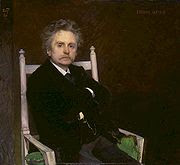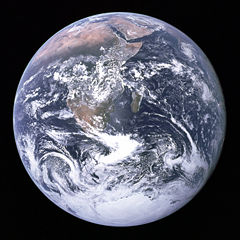The Practice--Music Elimination Diet & Delicious Replacements
If you’re reading this blog then you’re not the average
music listener. I imagine that you
prefer that music bolster some area of your life or bring healing to you on
some level. Or perhaps, you enjoy
listening to music with substance composed by musicians with the intent of
bringing beauty, power, and grace to the world.
As each of us grows our consciousness we need music to support us and
musicians as well. This begins with our
music diets.
A few years ago, I gave up eating gluten then eventually I
also eliminated cow dairy from my diet.
I’m already a vegetarian so people around me asked the question, “Well,
what will you eat now?” I noticed a
similar scenario when I stopped listening to pop and rock music. People asked, “Well, then what will you
listen to now?” They asked this question
because they prefer a life of limited options and ones that are spoon fed to
them by the media and large corporations.
Little thought goes into the foods or music that the average person
consumes, but then those folks aren’t reading this blog, unless they’re on the
cusp of transforming their lives.
It turns out that a wide world of music exists outside
American pop or western rock music. Just
look at the labels on the right side of this blog to get an idea of a small
portion of the music you can find in the world.
The internet has brought the world to our computers and with a visit to
YouTube we can explore virtually every type of music on the planet, from
Tibetan folk dance music to a night at the opera. Of course, this appeals to world travelers
and Cultural Creatives whose soul mission in life revolves around exploring and
connecting with other cultures.
While it might seem like a limitation to the casual observer
that eliminating a specific music genre from our music diet, in essence we make
room for music with more substance, as mentioned earlier. When I eliminated many popular foods from my
diet, I switched to whole nutrient dense food and found that I could actually
get away with eating less and feel healthier.
I could afford to buy organic super foods too because I wasn’t spending
money on bags of cookies (even the natural kind are junk food) and other
comfort foods. After I changed my diet,
I didn’t need comfort food any longer because I felt healthier emotionally
because I nurtured myself with healthy food.
I didn’t crave love in the form of food.
I find that it’s a similar situation with music. I get all the excitement I need from
flamenco, Brazilian samba, folk dance music, the occasional tango, and rustic
Cuban music that I don’t need rock music to jolt my nerves and pump up my
energy. I also don’t miss some of the
ridiculous lyrics in modern pop music.
However, I will admit that pop music from other eras contained poetic
lyrics and thoughtful stories. And I’m
sure there are still talented songwriters these days that choose the pop and rock
arenas to express their gifts. But I’m
not interested and prefer to explore more complex music with purposeful
intentions rather than selling lots of records.
Surprisingly, some of the complex music breaks through at times and
excites larger audiences too. Think
Gregorian Chant craze, for example, or Mozart’s music after books like The Mozart Effect hit the market.
I have no rules for developing your music diet, except to
keep a diary where you truthfully record your emotional and physical responses
to music and the situations in which you listened to the music. You will find yourself eliminating some music
and replacing it with another type of music.
Then this new music will lead you down a road to another type of music,
and then another type, and this is where the adventure comes in. The other thing you’ll notice as you explore
different types of music and observe your responses to that music, is that you
will find your own way in the world and make up your mind about what you enjoy
instead of feeling like music is force fed.
As you take this journey, you also become more authentic and discover
yourself. You could return to some of
the music you eliminated earlier but with a new perspective or you might just
find that you radically changed your life to a place of no return.
And by transforming your music diet, you also support
folkloric and classical musicians who some times etch out a living preserving a
tradition. Without your support some of
these musicians are forced to enter the pop music arena or to “modernize” the
folk music that was orally passed down to them.
We must get past this belief that old is bad and new is good. In my opinion, most folkloric music doesn’t
need a makeover and by keeping its integrity we honor our elders and heritage. This isn’t to say that music doesn’t
naturally evolve over time and change of culture, but that the change needs to
come naturally and not manipulated and controlled by the high-tech industry, which in the wrong
hands, leaves music sounding plastic.
So keep a music diary, explore new (to you) music, and
develop your personal music diet based on your experiences. By doing this you attract new people,
experiences, and situations in your life.
And when you raise your vibration by listening to music with cleaner
intent and purpose, you discover your authenticity.







Comments
Post a Comment